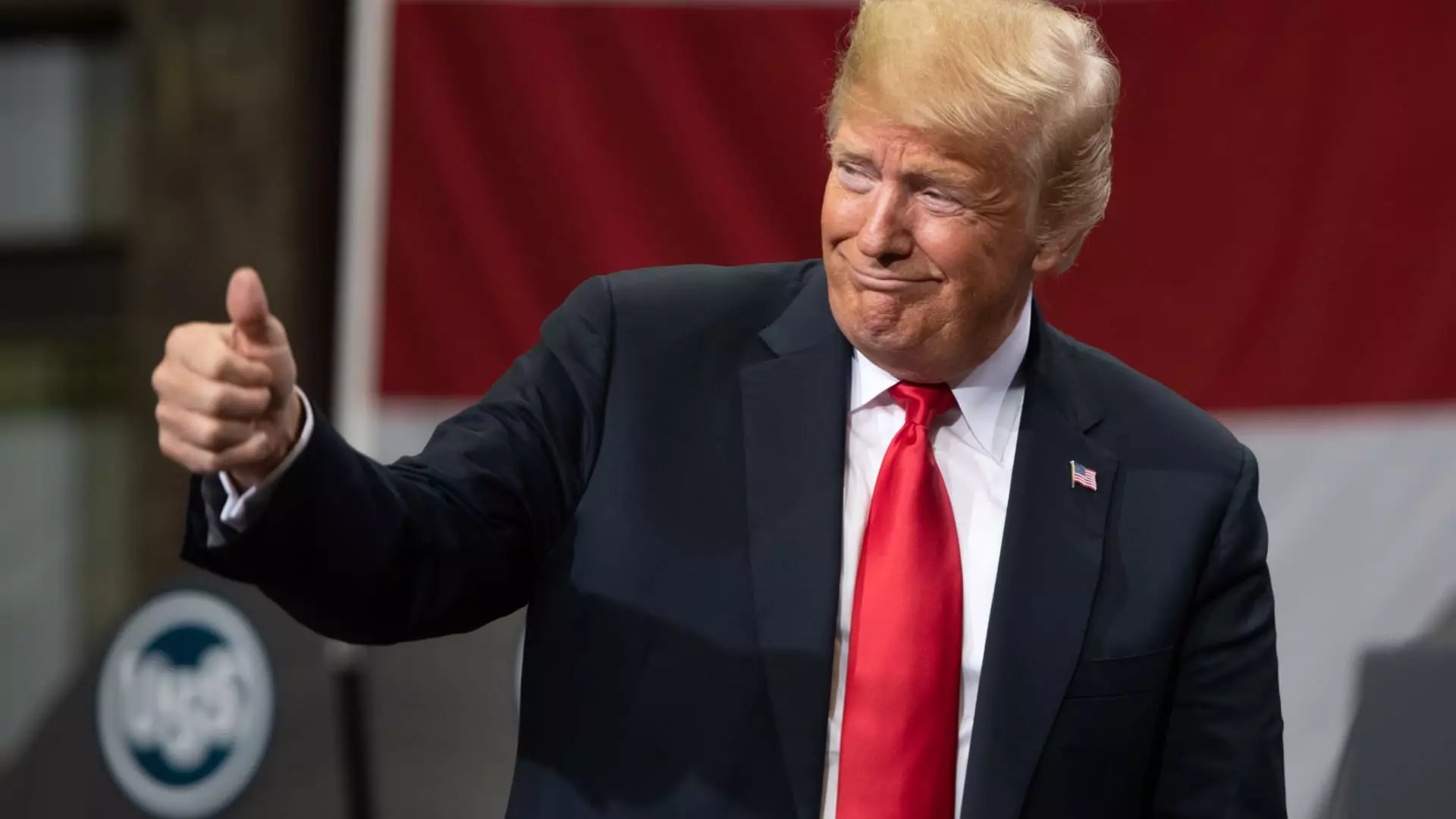In today’s volatile financial landscape, few figures elicit as much controversy as former President Donald Trump. His brash personality transcends the political stage, directly influencing the stock market. Recently, Trump took to Truth Social to proclaim, “THIS IS A GREAT TIME TO BUY!!!” just minutes after the market opened. This statement seemingly propelled investors to act instantly, showcasing not only his polarizing character but also raising questions about the ethics of such influence in the stock market.
Trump’s call to action resulted in a substantial spike in stock prices, particularly after he announced a rollback of tariffs that had previously rattled investors. The resulting rally was impressive, even historic, and highlighted an ongoing dynamic where Trump’s rhetoric directly affects market trends. Should a savvy investor have jumped in at the precise moment of Trump’s post, they would have experienced remarkable gains, especially as the SPDR S&P 500 ETF Trust soared over 10% during the session.
Timing is Everything
The implications of Trump’s social media timing were not lost on sharp investors. An initial investment of $1,000 in the SPDR could have yielded nearly $1,110 at its peak—a return rate that many would envy. This calls into question not just individual investor strategy but also the broader ethical landscape of stock trading.
It is interesting to dissect the sheer immediacy of social media’s control over financial markets. Trump’s followers appear eager and willing to take risks based on his word alone, an unsettling trend that can be misconstrued as a blend of charisma and manipulation. The discrepancy between genuine financial advice and speculative enthusiasm has never been more pronounced.
Chaos in the Market
Turning the spotlight to Trump Media & Technology, shares plummeted before rallying nearly 22% after the tweet. While it’s clear that many investors seized the opportunity, one has to consider the navigational peril of following a figure who seems to manipulate the market’s pulse through confidence and jest. Various Reddit forums reacted actively, with some users boasting about their “psychic” abilities in predicting market moves, while others raised eyebrows at the potential legal ramifications of such well-timed advice.
Is this an example of market manipulation veiled as patriotism? When Trump’s initials also served as a stock ticker prompt, some investors were quick to speculate on the implications. No matter what side of the spectrum one may find themselves on, it’s hard not to recognize the strangeness of these events.
The Tesla Effect
Focusing on other winners, the electric vehicle giant Tesla experienced a dramatic 22% peak after Trump’s comments—a response that resonates with Musk’s own link to Trump-era governance. However, the long-term viability of these market surges is questionable, especially for a stock so entwined with public perception and political commentary.
In a world that increasingly conflates tech innovation with political agendas, Tesla serves as a case study for the turbulent intersections of finance and philosophy. As Tesla dealerships face protests and other opposing forces, the company finds itself navigating an unfamiliar terrain where its value is as much about public goodwill as it is about innovation.
Amid the Gains, Gloom Lingers
However, let’s not overlook a crucial point: while the immediate gains are awe-inspiring, the overall trend reflects a darker undercurrent. Post-Trump’s initial tariff announcement, the stock market experienced a dip and, despite the subsequent surge, it remains off by about 3% compared to a week prior. The market’s tumultuous reaction underscores a lasting instability, dripping with uncertainty—especially given that retail forums are filled with questions of manipulation and insider trading, heightening anxieties in an already jittery environment.
The question arises: How sustainable are the growth trajectories that rely heavily on political whims? Investors’ impulsive behavior and the market’s disjointed nature, influenced by singular personalities, reveal profound weaknesses in the traditional investment calculus.
Navigating this financial minefield demands not just financial acuity but an awareness of the broader implications of allowing political figures to act as influencers in stock markets. The lessons of this episode may unfold in their duration, but for the present, the alliance between opinion, social media, and market behavior stands undeniable yet unsettling.

